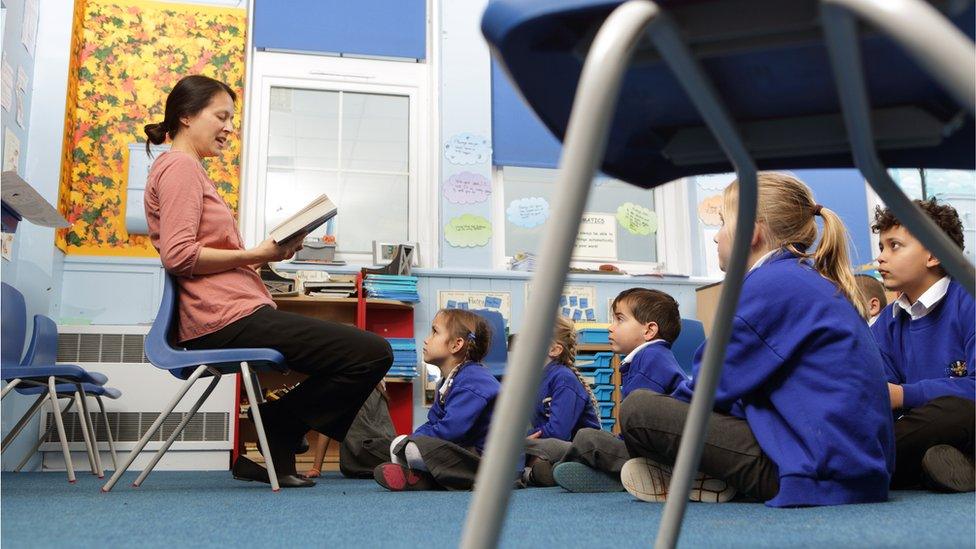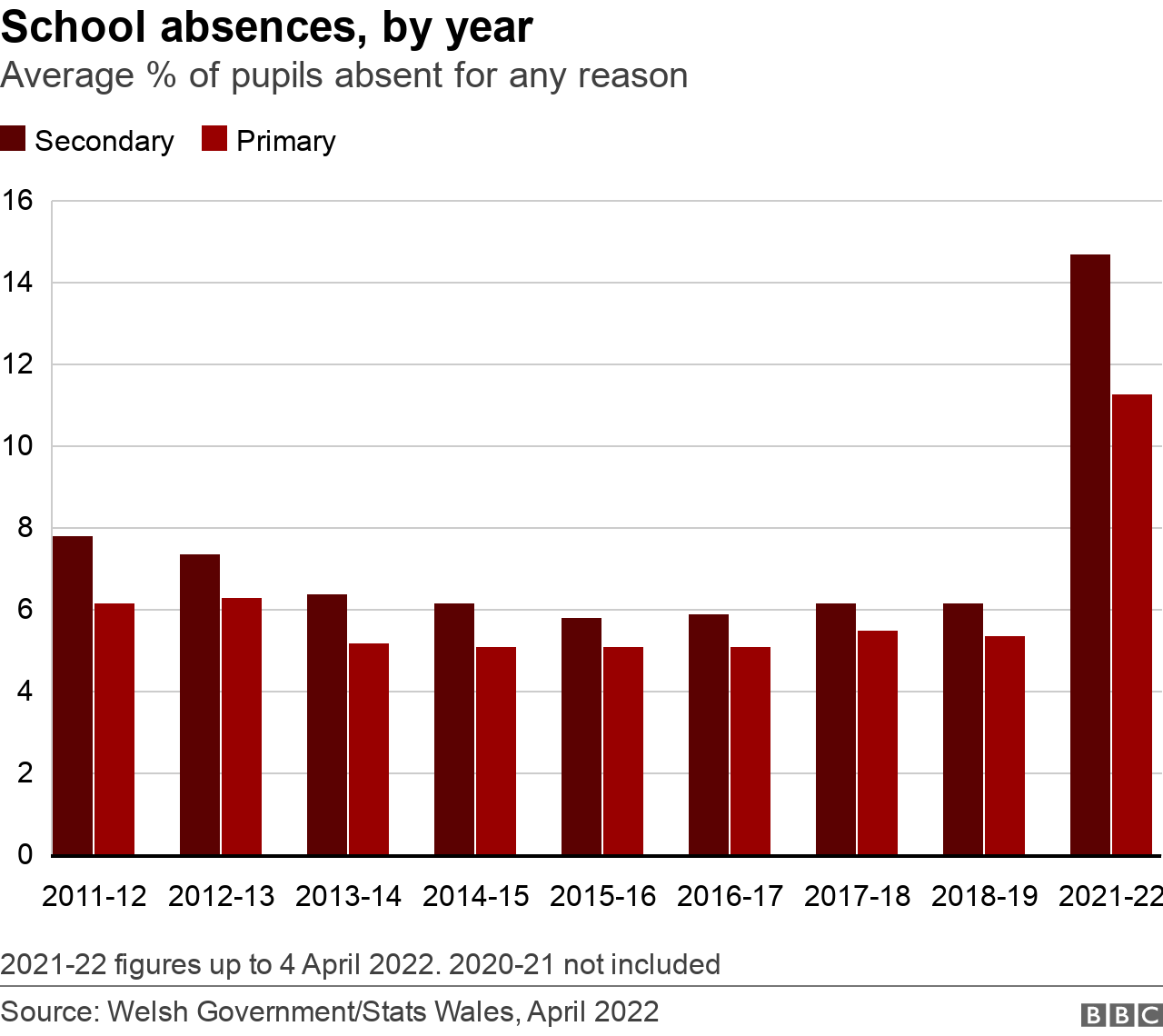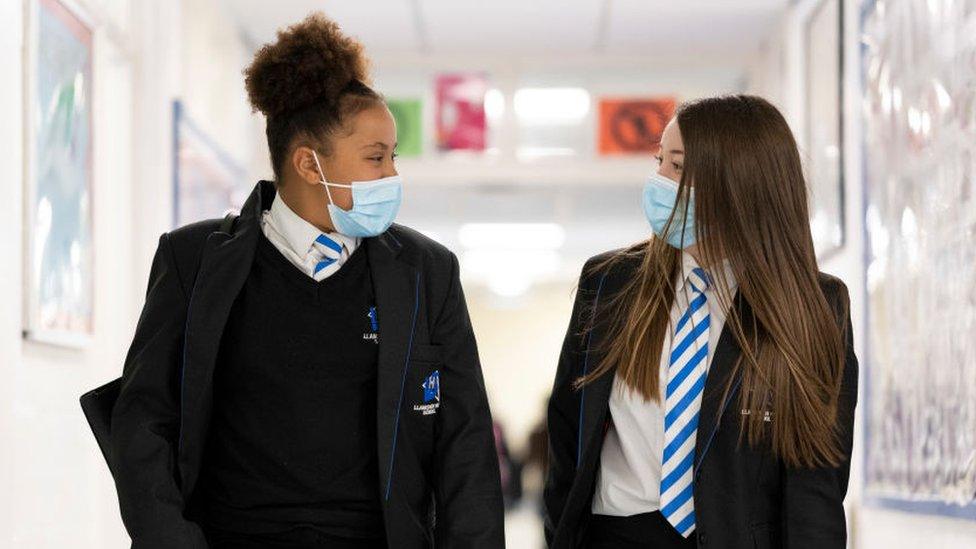Covid: Truancy fines for parents to return in Wales
- Published

Parents could again face fines if their children do not go to school in a bid to tackle school absences.
Ministers had discouraged councils from issuing fixed penalty notices for truancy as Covid hit education.
But amid worries about continued absenteeism councils will be asked to go back to pre-pandemic guidance.
Education Minister Jeremy Miles said he was "very concerned" some year groups are more likely than others not to be in school.
But he emphasised fines should be a "last-resort" and would only be used in the most extreme cases.
Headteachers' union NAHT said there remains a "great deal of anxiety" among parents and pupils, while Plaid Cymru said fining parents is "absolutely unjust" during the cost of living crisis.
According to the Welsh government's website guidance from 2013 states fixed penalty notices of £60 can be issued, rising to £120 if not paid within 28 days but before 42 days have passed.
After that point, a council can prosecute for the offence, or withdraw the notice.
Guidance states "a penalty notice is a suitable intervention in circumstances where the parent/carer is judged capable of securing their child's regular attendance or whereabouts but is not willing to take responsibility for doing so".
The announcement was made on the same day Wales announced it will end the requirement to wear masks in schools from Monday.
The absentee rate in Welsh schools has doubled since 2019. In the academic year 2018-19, absences stood at 5.4% in primary schools and 6.2% secondary schools.
In latest week where reliable figures are available, up to 1 April, they were 11.9% in primary and 15.4% in secondary schools.

The UK government had already said that parents in England could be fined "unless there is a good reason for absence". The issue had been the subject of a review in Wales.
Jeremy Miles said: "We are very concerned that particular year groups and particular cohorts of learners have been more likely, in some cases very much more likely, than others not to be in school.
He said he recognised the challenges of the last two years, but wanted to encourage pupils "back into the classroom".
The education minister added: "We are now asking local education authorities to revert to the pre-Covid guidance in relation to the issuing of fines.
"It is still the case that they should only be used as a last resort when all attempts to engage with families in the range of ways that we have have been exhausted."
He said additional funding had been allocated for family engagement officers to increase council's ability to "engage in particular ways where learners have been persistently absent."
Mr Miles told the Senedd that fines for truancy should be used "in only the most extreme cases as part of a range of options, and when all efforts to engage with a family have been tried, and failed".
'Jury out on impact'
Headteachers union NAHT said the jury is out on whether fining parents "actually has the desired effect on attendance".
"Our members tell us that there is still a great deal of anxiety amongst parents and learners, exacerbated by mental health concerns. NAHT Cymru believes the focus should be on supporting schools to find out what the issues are and bringing in those support services to address them," director Laura Doel said.
Education spokeswoman for the Welsh Conservatives, Laura Anne Jones, said: "I welcome these long overdue changes, it's high time we tackled the high rates of truancy that have existed since the start of the pandemic."
Plaid Cymru's pre-16 education spokeswoman Heledd Fychan said: "During the present cost of living crisis where parents are already struggling to make ends meet, imposing fines on parents who take their children on holiday during term time, and on parents who cannot get their children to go to school, for whatever reason, is absolutely unjust, and could potentially counteract some of the support measures designed to respond to the crisis."
Related topics
- Published3 May 2022
